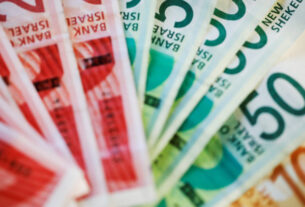Rescue teams look for victims, survivors buried under debris; Local healthcare system in Lebanese capital severely strained by massive influx of some 4,000 injured civilians
Some 250,000 people have become homeless and a hospital was destroyed in an explosion in the Lebanese capital of Beirut, the city’s governor Marwan Abboud told the local MTV Channel.
Over 100 people have died and 100 more people are still missing. Rescue teams and volunteers are trying to find victims and survivors that may have been buried under the rubble.
The coronavirus-weary healthcare system in the capital and the surrounding areas struggles to treat close
The healthcare system in the Lebanese capital and the surrounding area is struggling to deal with the massive influx of some 4,000 injured civilians. Lebanon’s health system was in a shaky state before the blast as the Levant country faced the coronavirus pandemic and a deep economic crisis that crippled the Lebanese economy.
Firefighting teams try to extinguish fires after Beirut explosion.
[embedded content]
Beirut’s St. George’s University Hospital, one of the city’s major medical centers which is located just two kilometers (1.2 miles) from the explosion site and mostly treated coronavirus patients, suffered heavy damages from the massive shock caused by the bang.
George Kettaneh told LBCI TV by telephone that the Red Cross was coordinating with the health ministry for morgues to take victims because hospitals were overwhelmed.
Defense Minister Benny Gantz said on Tuesday that the Jewish State has offered humanitarian assistance to Lebanon after the massive explosion.
“Israel has approached Lebanon through international security and diplomatic channels and has offered the Lebanese government medical and humanitarian assistance,” a written statement from Gantz and Foreign Minister Gabi Ashkenazi said.
According to Israeli officials, the offer was made through the United Nations Interim Force in Lebanon, the UN, and France. Israel is said to have offered medical supplies and an option of treating some of the wounded, including UNIFIL workers, in Israeli hospitals.
[embedded content]
President Reuven Rivlin also expressed his condolences. “We share the pain of the Lebanese people and sincerely reach out to offer our aid at this difficult time,” he said.
The incident comes during tension between the Lebanese terror group Hezbollah and Israel. Senior Israeli officials said following the incident the country is not connected to the blast.
British Prime Minister Boris Johnson also said Britain stood ready to provide any support it could to help Beirut. “The pictures and videos from Beirut tonight are shocking,” Johnson wrote on Twitter. “All of my thoughts and prayers are with those caught up in this terrible incident.
“The UK is ready to provide support in any way we can, including to those British nationals affected.”
The U.S. State Department said it is ready to offer “all possible assistance”, a spokesperson for the agency said.
The Department has no information about the cause of the explosion, the spokesperson said and added that the agency is working closely with local authorities to determine if any U.S. citizens were affected in the incident.
However, U.S. President Donald Trump said U.S. military generals have told him that they “seem to feel” the massive explosion that rocked Beirut on Tuesday, killing at least 78 people, was a “terrible attack” likely caused by a bomb.
Trump was asked why he called it an attack and not an accident, especially since Lebanese officials say they have not determined the cause of the explosion. He told reporters at the White House: “It would seem like it based on the explosion. I met with some of our great generals and they just seem to feel that it was. This was not a – some kind of a manufacturing explosion type of an event… They seem to think it was an attack. It was a bomb of some kind, yes.”
Saudi Arabia’s foreign ministry said on Tuesday that it is following with great concern the consequences of the explosion, according to the state news agency. The statement also affirmed the kingdom’s full support and solidarity with the Lebanese people.
The afternoon blast shook several parts of the capital, glass shattered, balconies collapsed from the impact and thick smoke billowed from the city center.
Residents reported windows being blown out and ceilings dropping. The explosion appeared to be centered around Beirut’s port and caused wide-scale destruction and shattered windows miles away.
An Associated Press photographer near Beirut’s port witnessed people wounded on the ground and widespread destruction in central Beirut.
“I saw a fireball and smoke billowing over Beirut. People were screaming and running, bleeding. Balconies were blown off buildings. Glass in high-rise buildings shattered and fell to the street,” said a witness.
Another witness said she saw heavy grey smoke near the port area and then heard an explosion and saw flames of fire and black smoke: “All the downtown area windows are smashed and there are wounded people walking around. It is total chaos.”
Lebanon’s state news agency NNA and two security sources said the blast had occurred in the port area where there are warehouses housing explosives. It was not immediately clear what caused the blast or what kind of explosives were in the warehouses.
U.N. spokesman Farhan Haq told reporters it was not immediately clear what the cause was, and that there was no indication of any injuries to any U.N. personnel. “We do not have information about what has happened precisely, what has caused this, whether it’s an accidental or manmade act,” he said.
The U.S. Pentagon said: “We are aware of the explosion and are concerned for the potential loss of life due to such a massive explosion.”
In Cyprus, an island lying west of Lebanon, residents reported two large bangs in quick succession. One resident of the capital Nicosia said his house shook, rattling shutters.
News agencies, Daniel Salami, Ynet News
Read more about: Beirut Explosion, lebanon




